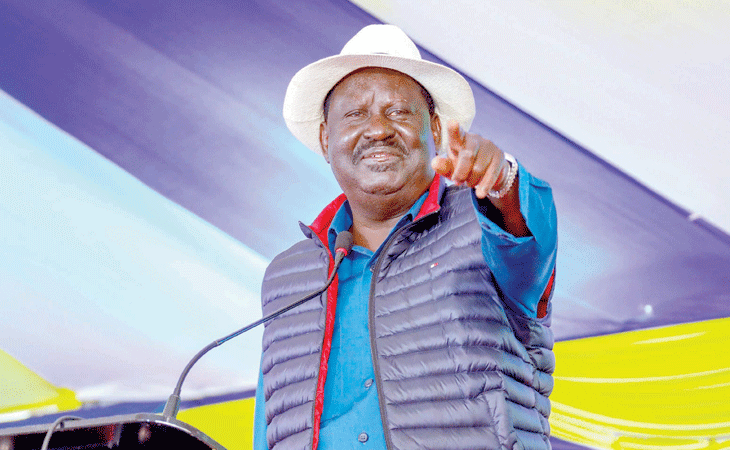We won’t petition if Building Bridges Initiative (BBI) case flops
By People Reporter, August 19, 2021Kepher Otieno
The clamour for review of the Constitution under the Building Bridges Initiative (BBI) will end tomorrow if the Court of Appeal rules against the petition.
Opposition leader Raila Odinga says his side will not seek further legal redress at the Supreme Court, if the much-awaited case is dismissed by the Court of Appeal.
A seven-judge Bench will tomorrow rule on the appeal against a High Court decision, declaring the BBI project as “unconstitutional, null and void.”
Raila, long and protracted legal battles will eat into their 2022 General Election campaign time.
Instead, he says they will focus on the Azimio La Umoja movement, which was launched in Nakuru on Tuesday.
Strategic plan
Raila says the Azimio La Umoja is aimed at creating a movement, whose role is to allow people the opportunity to come together, speak their mind and discuss about the Kenya they want.
“Whichever way the ruling goes, we shall carry on with our unity agenda. We have a strategic plan to unite the country ahead of the 2022 General Election. This is good and is unstoppable,’’ he declared.
Raila, while speaking during a morning Radio show on Nam Lolwe FM yesterday, said should the court trash the BBI project, they will shelve the plans and only revisit, if they form the next government.
He spoke before he went to meet President Uhuru Kenyatta at Mombasa State House.
He claimed that he was not aware of what will emanate from the courts, but they have “adjusted their adrenaline” to absorb the heat when the ruling is rendered tomorrow.
“If the ruling favours Kenyans, good. If they rule otherwise, it will still be okay but nobody can stop reggae.
We will reintroduce it in the next government. But we won’t waste time again going to the Supreme Court to challenge the decisions further,” he said.
Last month, Raila said his team has a ‘Plan B’ should the higher courts reject BBI constitutional change push.
The High Court on May 13, blocked the government-backed plan to make fundamental changes to the Constitution, among them the expansion of the Executive to create the position of Prime Minister with two deputies.
Justices Joel Ngugi, George Odunga, Jairus Ngaah, Chacha Mwita and Teresia Matheka declared the BBI process as irregular, illegal and unconstitutional.
In their ruling, they declared the President cannot initiate amendments through a popular initiative, maintaining that route was reserved for Wanjiku.
Uhuru and Raila unveiled the initiative after a truce following the disputed 2017 presidential election that nearly pushed the country to the edge.
Already, the Court of Appeal has notified Kenyans that the pending judgment will be read by the seven judges in an open court, with numbers of those to attend limited due to the Covid-19 pandemic.
0nly 16 lawyers will be allowed in the court while the rest will follow proceedings online; in keeping with the social distancing norm, according Court of Appeal Deputy Registrar Lorraine Ogombe.
Court of Appeal President Daniel Musinga, Justices Hannah Okwengu, Patrick Kiage, Fatuma Sichale, Gatembu Kairu, Roselyne Nambuye and Francis Tuiyot, retreated to write the ruling that is expected to be a game changer in the country’s political landscape.
The BBI contains a nine-point agenda of issues singled out by Uhuru and Raila, to address some of what they described as the country’s most pressing issues.
But some critics led by the Deputy President William Ruto say it is a selfish initiative to reward certain politicians.
Presidential assent
The two houses of Parliament and county assemblies had passed the Constitutional Amendment Bill 2020 that contained the BBI proposals before they were stopped by the High Court.
It was awaiting a presidential assent, after which Kenyans would have headed to a referendum, before next year’s elections.
The judges also ruled that the BBI taskforce, a body created by the President, was illegal, adding that Uhuru had failed the leadership test.
BBI had proposed the creation of a prime minister post, at least 70 new constituencies and an affirmative action clause that could create up to 300 new unelected Members of Parliament.
At the weekend, the Constitutional Implementation Oversight Commission team led by vice-chairman Peter Kaluma said some of the amendments will be made through parliamentary initiatives.
